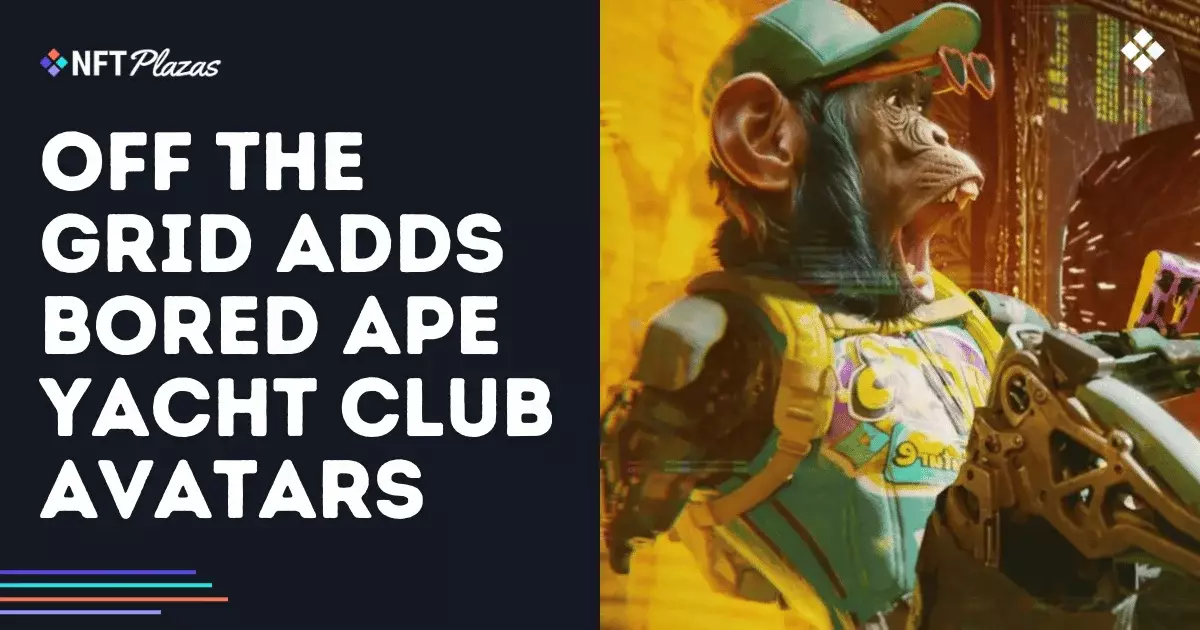In recent years, the gaming landscape has been dramatically transformed by the advent of blockchain technology and non-fungible tokens (NFTs), capturing the attention of players and investors alike. One prominent example is Gunzilla Games’ title, Off the Grid, which recently incorporated Bored Ape Yacht Club (BAYC)-themed content. While this fusion of conventional gaming and digital ownership appears exciting on the surface, it compels us to critically examine the possible pitfalls of integrating NFTs into gaming—and the rapid commercialization of an already complex industry.
Cultural Commodification: Are We Losing the Essence of Gaming?
The introduction of BAYC-themed content not only panders to the prevailing NFT buzz but also speaks volumes about the direction in which gaming culture is headed. Historically, video games have emphasized narrative depth, immersive environments, and community-building. Yet with developments like this, it raises the question: Is nostalgia being commodified? Instead of enriching storytelling or gameplay, the focus may shift to a market-driven mentality—conveniently packaging beloved cultural icons as mere financial assets. Consequently, one must wonder whether the experience of playing games is being diluted in favor of generating revenue streams through exclusive cosmetic updates.
Market Volatility: The Crypto Gamble
The launch of Gunzilla’s $GUN token underscores the volatility that accompanies blockchain-based games. After its introduction, its value plummeted more than 50%, revealing a disheartening trend endemic to crypto assets. This fluctuation raises alarms on whether players’ investments yield real-world benefits or if they simply constitute a speculative gamble. Adding to this tumult is the fact that the token is not functional within Off the Grid, even as Gunzilla proclaims that transitioning to their GUNZ network is a priority.
The Ethical Conundrum: Exclusivity vs. Accessibility
Much of the NFT-driven gaming market is inaccessible to average players. With the BAYC content locked behind a subscription model, gaming is at risk of becoming a luxury commodity. The notion of exclusivity isn’t just frustrating; it undermines years of efforts toward creating inclusive gaming communities. While high-stakes gaming may excite those who can afford it, what of the masses who seek genuine engagement? They may find themselves alienated, merely spectators in a game dominated by financial capital.
The Ecological Footprint: Environmental Concerns Remain Urgent
Lastly, we must confront the environmental implications of blockchain gaming. The Avalanche network powering Off the Grid might be marketed as an alternative to the infamous energy guzzler, Ethereum, but the overall impact of cryptocurrency-related activities—managing NFTs and tokens—is still significant. As the gaming industry further embraces this model, environmental stewardship should be at the forefront of decision-making, not just an afterthought.
In an age where technological innovation is rampant, we must question not just the potential benefits of NFT gaming but the deeper social and ethical ramifications stemming from its rise. Embracing change is vital, but it should never come at the sacrifice of good gaming principles or meaningful human experiences.


Leave a Reply